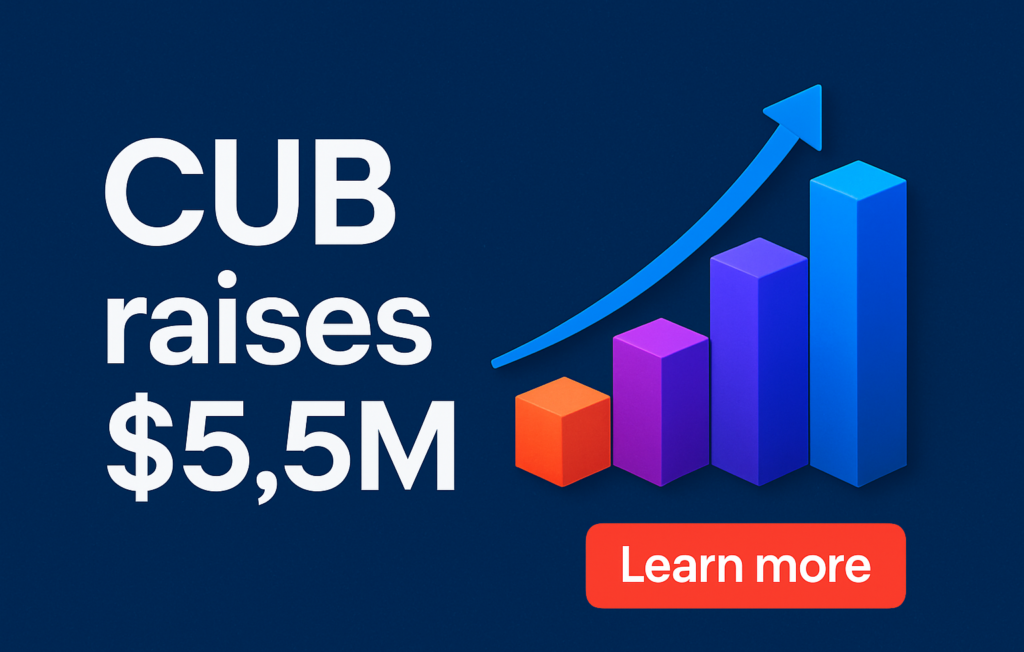The CUB funding news just hit, and wow – this is huge! CUB raises “$5.5” million in Series A funding, and honestly, this couldn’t come at a better time for Brazil’s real estate sector. We’re talking about a fintech that’s solving real problems, not just chasing hype.
CUB focuses on receivables management and payment processing for real estate developers – specifically those nightmare scenarios where tracking payments becomes a full-time headache. The CUB funding round validates what industry insiders already know: manual receivables processes are killing efficiency and profits.
What makes this CUB story so compelling? They’ve already processed substantial transaction volumes, proving their platform works in real-world conditions rather than just looking good in pitch decks.
CUB Secures $5.5M Series A Funding Led by Alexia Ventures and Upload Ventures
This CUB funding round tells a straightforward success story. Alexia Ventures and Upload Ventures are leading the $5.5 million investment, demonstrating serious institutional confidence in CUB’s approach to real estate financial technology.
The funding structure makes perfect sense when you consider Brazil’s real estate market dynamics. Developers desperately need better financial infrastructure, and CUB delivers exactly that solution. This isn’t speculative investing – it’s backing a company with proven market fit.
CUB funding at this level positions the company for serious expansion. When experienced venture capital firms invest $5.5 million, they’re betting on scalable technology and strong execution capabilities.
Brazilian Real Estate Fintech CUB Automates Receivables Management and Payment Processing
The business model of CUB centers on integrated financial solutions for land lot developers. Their platform combines payment automation, bank reconciliation, business intelligence, and credit access into one comprehensive system.
Here’s what’s impressive about the business model of CUB: they’ve processed over R$600 million in transactions across 400 real estate projects involving 77,000 contracts. These numbers represent actual market validation, not projections.
CUB’s automation replaces manual processes that traditionally required extensive administrative resources. The business model of CUB directly addresses cash flow challenges that plague real estate development, creating measurable value for their clients through reduced operational complexity.
Founded in 2022 by Leonardo Gasparin and Co-Founders CUB Addresses Real Estate Sector Cash Flow Challenges
Who are the founders of CUB? Leonardo Gasparin leads the founding team that launched CUB in 2022. The founders of CUB identified systemic inefficiencies in real estate receivables management and built solutions addressing these specific problems.
The founders of CUB understood that cash flow issues aren’t just about late payments – they stem from inadequate systems for managing the entire receivables process. This insight shaped their platform development approach.
Who are the founders of CUB matters because they brought industry experience to technology development. The founders of CUB launched at an optimal moment when Brazil’s real estate sector was ready for financial infrastructure modernization.
CUB Capital Credit Arm Unlocks Capital for New Real Estate Projects Through Integrated Platform
The business model of CUB extends beyond operational efficiency into credit facilitation. By managing receivables effectively, CUB generates valuable data on payment patterns and project performance metrics.
This data enables more accurate credit assessments, improving capital access for developers using CUB’s platform. The business model of CUB creates a beneficial cycle where better receivables management leads to enhanced credit availability.
CUB’s integrated approach means developers get both operational solutions and financing opportunities through one platform. The business model of CUB addresses multiple pain points simultaneously, increasing client retention and expanding revenue opportunities for the company.
How CUB Plans to Scale Receivables Automation and Governance Solutions Across Latin America
Future plans of CUB focus on Latin American expansion using their proven Brazilian model. This CUB funding provides capital for scaling operations across regional markets with similar real estate development challenges.
Future plans of CUB include positioning as infrastructure for real estate finance throughout Latin America. Their automation-first approach allows market expansion without proportional operational cost increases.
The future plans of CUB leverage their technology platform’s scalability. As Latin American countries modernize real estate sectors, CUB’s established solutions provide frameworks for rapid market entry.
Future plans of CUB position them as the dominant regional player in real estate fintech. This CUB funding round enables aggressive expansion while maintaining their focus on receivables automation and governance solutions.
Business model of CUB
| Aspect | Details |
|---|---|
| How Company Started | Founded in 2022 by Leonardo Gasparin, Fábio Coutinho, Thais Matoszko, and Lucas Zago to solve receivables management chaos in Brazil’s real estate sector. Started with deep industry experience recognizing systematic inefficiencies in property development finance. |
| Present Condition | Absolutely crushing it! Processing R$600+ million across 400 projects and 77,000 contracts. Just closed $5.5M Series A led by Alexia Ventures (who already invested R$14M seed). Platform reducing default rates for clients in 2024. |
| Future of Company & Industry | Aggressive Latin America expansion planned with this funding. Real estate fintech sector exploding as traditional developers desperately need digital infrastructure. CUB positioned as the infrastructure layer for regional property finance. |
| Opportunities for Young Entrepreneurs | Massive! Proptech is still underserved across Latin America. Opportunities in adjacent areas like property management, tenant screening, construction financing, and regulatory compliance automation. Each country needs localized solutions. |
| Market Share | Early-stage player in Brazil’s land lot development niche. No public data on total market share, but 400+ projects suggest significant traction in their target segment. Competing in fragmented market with mostly manual competitors. |
| MOAT (Competitive Advantage) | Integrated platform combining receivables automation + credit access + business intelligence. Network effects from transaction data improving credit assessments. First-mover advantage in automated land lot developer solutions in Brazil. |
| How Company Makes Money | Revenue from receivables management platform subscriptions, transaction processing fees, and credit facilitation commissions. The credit arm creates recurring revenue as developers access capital for new projects through their improved financial profiles. |

My Name is Adarsh and I am Empowering startups with high-quality content at Startups Union and bridging the gap between brand stories.
